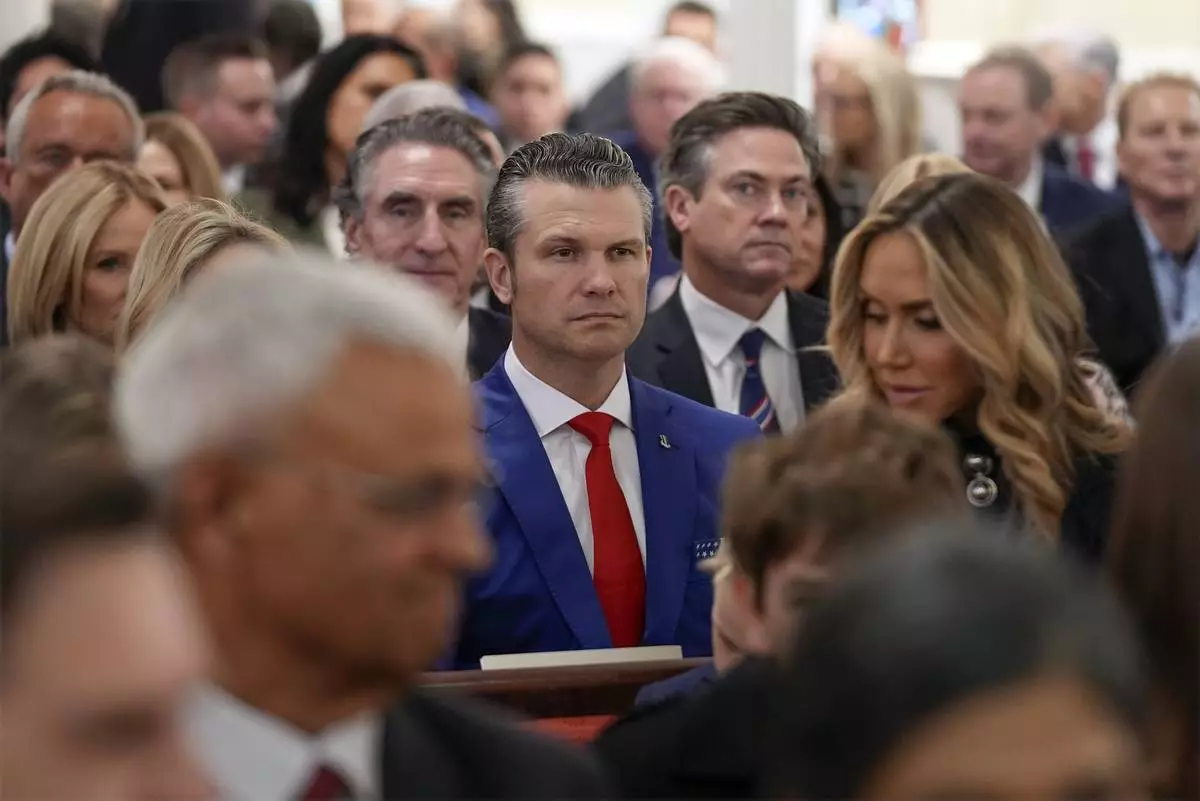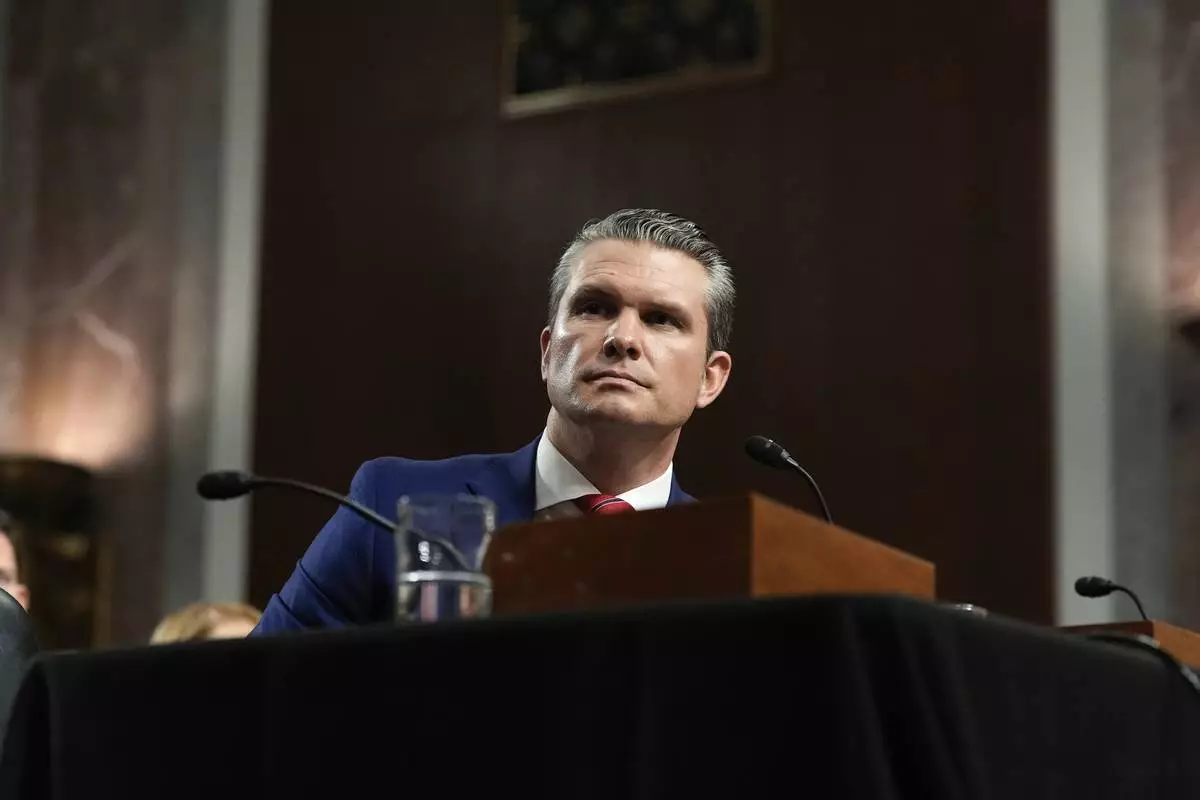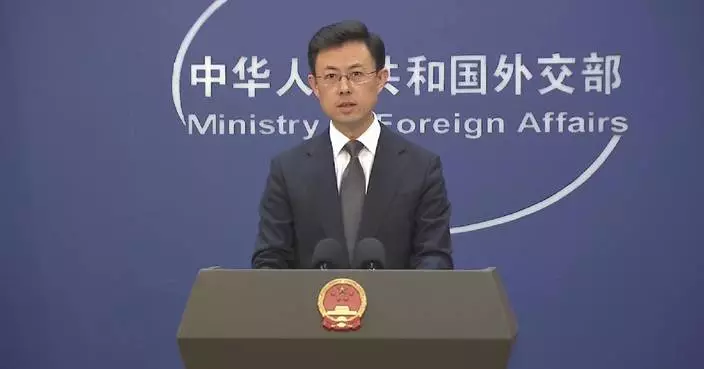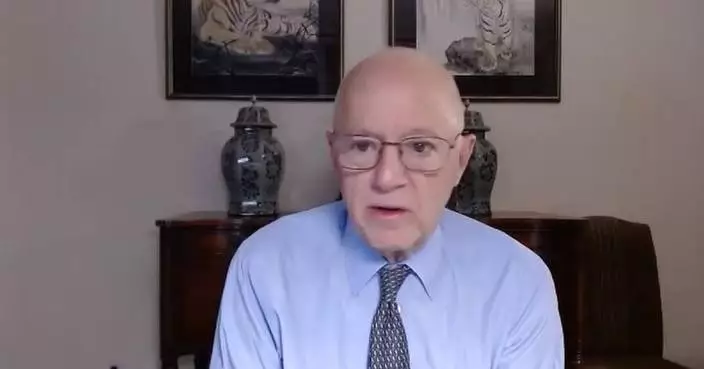MADISON, Wis. (AP) — University of Wisconsin leaders must limit their public statements to matters that affect school operations and maintain neutral viewpoints under a new policy that system administrators released Friday.
UW system spokesperson Mark Pitsch said in an email to The Associated Press that the policy will take effect immediately and doesn't need the approval of the board of regents. Asked what drove the policy's creation, Pitsch pointed to language in the policy that states the restrictions are necessary in order to uphold academic freedom and an environment where ideas can compete freely.
The move comes after UW-Milwaukee Chancellor Mark Mone struck a deal in May ending pro-Palestinian campus protests. The university agreed to call for a cease-fire in Gaza and discuss cutting ties with Israeli companies.
The deal drew intense criticism from Jewish groups. UW system President Jay Rothman also took Mone to task over the deal, posting on X that campuses need to remain viewpoint-neutral and make sure actions on campus have consequences. Rothman is trying to stay on good terms with Republicans who control the Legislature in the hopes of securing an $855 million boost for the system in the next state budget.
Republican lawmakers have complained for years that universities have become bastions of liberal thought and have been stifling conservative voices. Some in the GOP have called for federal legislation that would require colleges to protect free speech and punish those who infringe on others’ rights.
Mone announced this summer that he plans to resign next July 1. He has not said specifically why he chose to step down. Like all UW chancellors, he has struggled with financial issues brought on largely by declining enrollment and relatively flat state aid. UW-Milwaukee spokesperson Angelica Duria referred questions to Pitsch.
Under the new policy, university leaders can issue public statements only on matters that directly affect university operations and their core mission. They must maintain viewpoint neutrality whenever referencing any political or social controversy.
Any expression of support or opposition must be approved by Rothman or the school's chancellor. Statements expressing solidarity or empathy should be avoided when they imply support for one group's viewpoint over another.
The policy applies to Rothman, system vice presidents, university chancellors, provosts, vice chancellors, deans, directors, department chairs and anyone else perceived as speaking on behalf of a system institution.
The policy does not apply to faculty or staff when teaching or expressing their expertise of a situation related to their field, although they should be careful when posting such statements on university-owned channels so that they won't be construed as representing the institution's position. The policy also doesn't apply to faculty and staff's personal statements on non-university-owned channels.
The Wisconsin chapter of the American Civil Liberties Union didn't immediately reply to an email seeking comment.

FILE - Pro-Palestinian demonstrators continue their encampment at Library Mall on the campus of the University of Wisconsin in Madison, Wis., May 1, 2024. (Samantha Madar/Wisconsin State Journal via AP, File)
WASHINGTON (AP) — Senators vetting the nomination of Pete Hegseth for defense secretary received an affidavit Tuesday from a former sister-in-law alleging that the onetime Fox News host was abusive to his second wife, to the point where she feared for her safety. Hegseth denies the allegations.
The sister-in-law, Danielle Hegseth, was formerly married to the nominee's brother, and in an affidavit obtained by The Associated Press, she said she believes that Pete Hegseth is “unfit” to run the Defense Department based on what she witnessed and heard. She said she first relayed her allegations to the FBI in December but was concerned that the information was not shared with Congress as senators consider Hegseth's nomination to lead the Pentagon.
The affidavit describes Hegseth’s treatment of his second wife, Samantha, and alleges repeat drunkenness and a domestic situation where Samantha Hegseth had a safe word to indicate if she was in danger at home. Danielle Hegseth said Samantha texted that safe word to her sometime in 2015 or 2016, which prompted her to call a third party for help.
“I have chosen to come forward publicly, at significant personal sacrifice, because I am deeply concerned by what Hegseth’s confirmation would mean for our military and our country,” she said.
An attorney for Pete Hegseth vehemently denied the allegations. Tim Parlatore said the affidavit was filled with “belated claims” by an ex-relative with “an axe to grind against the entire Hegseth family.”
“Sam has never alleged that there was any abuse, she signed court documents acknowledging that there was no abuse and recently reaffirmed the same during her FBI interview," Parlatore said in a statement. "Belated claims by Danielle Dietrich, an anti-Trump far left Democrat who is divorced from Mr. Hegseth’s brother and never got along with the Hegseth family, do nothing to change that.”
The affidavit was filed in response to a request from Sen. Jack Reed of Rhode Island, the top Democrat on the Senate Armed Services Committee, who said he was seeking her statement to gain “personal knowledge about Mr. Hegseth’s fitness to occupy this important position.”
In the affidavit, Danielle Hegseth says she believes Hegseth’s marriage to Samantha was abusive. She said Samantha in 2014 told her she once hid in her closet because she feared for her safety. She acknowledged she did “not personally witness physical or sexual abuse” by Pete Hegseth toward his wife.
“I believe what Samantha told me because what she told me is consistent with what I personally observed of Hegseth’s erratic and aggressive behavior over many years,” she said.
Neither Samantha Hegseth nor an attorney who represented her in divorce proceedings immediately responded to requests for comment. A lawyer for Danielle Hegseth noted that she wouldn't be commenting further than the affidavit.
In a statement to NBC News, which first reported on the affidavit, Samantha Hegseth said there "was no physical abuse in my marriage. This is the only further statement I will make to you, I have let you know that I am not speaking and will not speak on my marriage to Pete. Please respect this decision.”
Samantha Hegseth and Pete Hegseth both signed a Minnesota court document in 2021 during their divorce saying neither claimed to be a victim of domestic abuse.
Republican leaders said they doubted the new allegations would change the votes of support they are lining up for Hegseth. They marched ahead with the nomination Tuesday evening, taking a key procedural step needed to confirm him by week's end.
“Looks like a desperate ploy by Democrats who are being driven by the far left because they know that we have the votes to confirm,” said Sen. John Barrasso, the No. 2 GOP leader.
Asked if the new allegations changes the votes for Hegseth, he said: “No.”
Sen. John Cornyn, R-Texas, said he was aware of the reported allegations and compared the situation to the claims made against Brett Kavanaugh during his own confirmation hearing, before he was eventually confirmed as a Supreme Court justice.
“I don’t really have anything to offer,” Cornyn said. “I was involved in the Kavanaugh hearings, where people came out of the closet making all sorts of false allegations.”
Questions were raised before Hegseth’s hearing last week about the scope of the FBI background check, which some said failed to include interviews with those who had raised allegations against him. Democrats pushed for a deeper FBI review that could be more broadly shared with senators.
During the hearing, Hegseth did not directly answer yes or no to questions about his drinking, instead saying the issue was part of an orchestrated smear campaign against him.
At the time, it was left to the Trump transition team to decide how much more information to pursue and share on Hegseth.
The information in the affidavit was not relayed to the leaders of the Armed Services Committee when FBI officials briefed them earlier this month on the results of Hegseth’s background check, according to a person familiar with the contents of the briefing who was granted anonymity to discuss it.
“As I have said for months, the reports of Mr. Hegseth’s history of alleged sexual assault, alcohol abuse, and public misconduct necessitate an exhaustive background investigation," Reed said in a statement Tuesday. “I have been concerned that the background check process has been inadequate, and this affidavit confirms my fears.”
Hegseth was grilled by senators during his hearing about his behavior, including excessive drinking, extramarital affairs and allegations of sexual assault, which he has denied.
Hegseth has promised not to drink on the job and has denied a 2017 sex assault allegation but acknowledged paying the woman a settlement. He was going through a divorce at the time after having a child with a Fox News producer who became his current wife, according to court records and his social media posts.
In the affidavit, Danielle Hegseth also alleges that Pete Hegseth, while under the influence of alcohol and both were leaving a bar, repeatedly shouted “no means yes!"
“I took this to mean that, in his opinion, nonconsensual sex is ok,” Danielle Hegseth said in the affidavit.
AP reporters Eric Tucker and Lolita C. Baldor contributed from Washington.

Defense Secretary nominee Pete Hegseth arrives before President-elect Donald Trump at a service at St. John's Church, Monday, Jan. 20, 2025, in Washington, ahead of the 60th Presidential Inauguration. (AP Photo/Evan Vucci)

Pete Hegseth, President-elect Donald Trump's choice to be Defense secretary, appears before the Senate Armed Services Committee for his confirmation hearing, at the Capitol in Washington, Tuesday, Jan. 14, 2025. (AP Photo/Alex Brandon)





















































